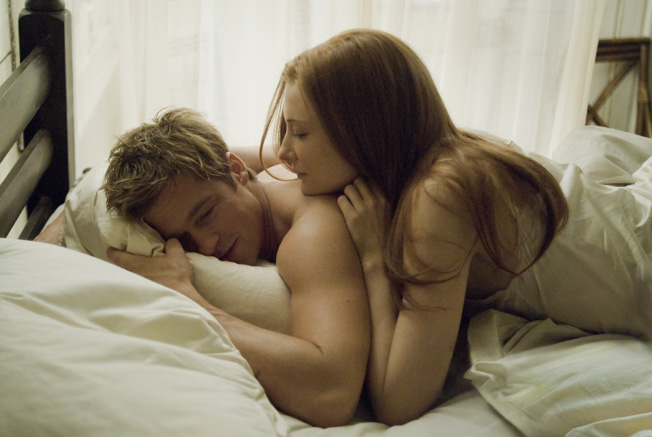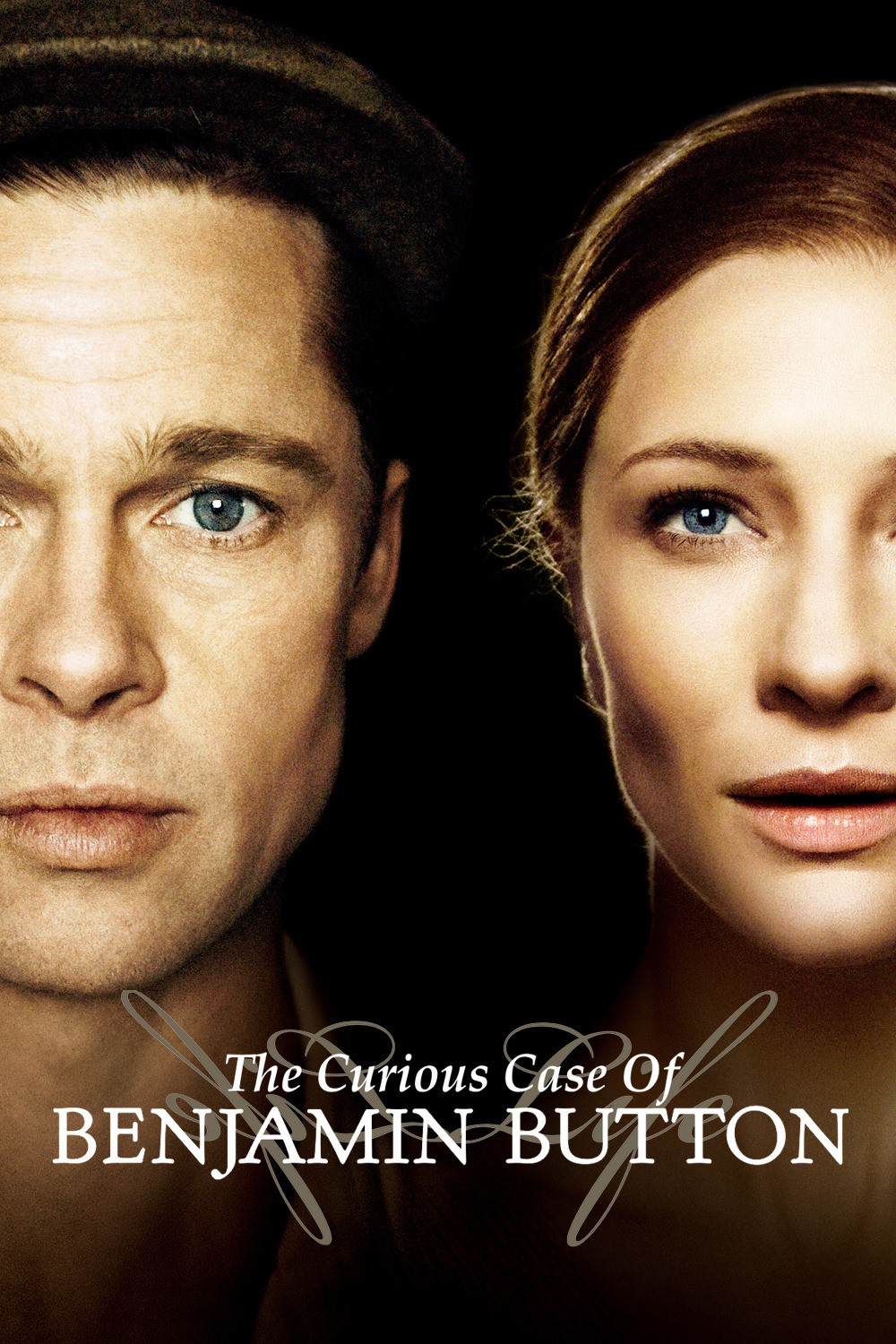“The Curious Case of Benjamin Button” is a splendidly made film based on a profoundly mistaken premise. It tells the story of a man who is old when he is born and an infant when he dies. All those around him, everyone he knows and loves, grow older in the usual way, and he passes them on the way down. As I watched the film, I became consumed by a conviction that this was simply wrong.
Let me paraphrase the oldest story I know: In the beginning, there was nothing, and then God said, “Let there be light.” Everything comes after the beginning, and we all seem to share this awareness of the direction of time’s arrow. There is a famous line by e.e. cummings that might seem to apply to Benjamin Button: and down he forgot as up he grew. But no, it involves the process of forgetting our youth as we grow older.
We begin a movie or novel and assume it will tell a story in chronological time. Flashbacks and flash-forwards, we understand. If it moves backward through a story (Harold Pinter’s “Betrayal“), its scenes reflect a chronology seen out of order. If a day repeats itself (Harold Ramis’ “Groundhog Day“), each new day begins with the hero awakening and moving forward. If time is fractured into branching paths (“Synecdoche, New York“), it is about how we attempt to control our lives. Even time-travel stories always depend on the inexorable direction of time.
Yes, you say, but Benjamin Button’s story is a fantasy. I realize that. It can invent as much as it pleases. But the film’s admirers speak of how deeply they were touched, what meditations it invoked. I felt instead: Life doesn’t work this way. We are an observer of our passage, and so are others. It has been proposed that one reason people marry is because they desire a witness to their lives. How could we perform that act of love if we were aging in opposite directions?
The movie’s premise devalues any relationship, makes futile any friendship or romance, and spits, not into the face of destiny, but backward into the maw of time. It even undermines the charm of compound interest. In the film, Benjamin (Brad Pitt) as an older man is enchanted by a younger girl (Cate Blanchett). Later in the film, when he is younger and she is older, they make love. This is presumably meant to be the emotional high point. I shuddered. No! No! What are they thinking during sex? What fantasies apply? Does he remember her as a girl? Does she picture the old man she loved?
Pitt will of course be nominated for best actor and may deserve it because of his heroic struggle in the performance. Yes, he had to undergo much makeup, create body language and perform physically to be manipulated by computers. He portrays the Ages of Man with much skill. That goes with the territory. But how did he prepare emotionally? What exercises would the Method suggest? You can’t go through life waving goodbye. He is born looking like a baby with all the infirmities old age. He grows younger, until he resembles Brad Pitt, and then a younger Brad Pitt, and then — we do not follow him all the way as he recedes into the temporal distance.
The film was directed by David Fincher, no stranger to labyrinths (“Zodiac,” “Fight Club“). The screenplay is by Eric Roth, who wrote “Forrest Gump” and reprises the same approach, by having his hero’s condition determine his life experience. To say, however, that Roth “adapted” the original short story by F. Scott Fitzgerald would be putting it mildly. Fitzgerald wrote a comic farce, which Roth has made a forlorn elegy. Roth’s approach makes Benjamin the size of a baby at birth. Fitzgerald sardonically but consistently goes the other way: The child is born as an old man, and grows smaller and shorter until he is finally a bottle-fed baby. Not much is said about Benjamin’s mother, which is a pity, because he is 5-feet-8 at birth, and I wonder how much pushing that required.
I said the film is well-made, and so it is. The actors are the best: Taraji P. Henson, Julia Ormond, Elias Koteas, Tilda Swinton. Given the resources and talent here, quite a movie might have resulted. But it’s so hard to care about this story. There is no lesson to be learned. No catharsis is possible. In Fitzgerald’s version, even Benjamin himself fails to comprehend his fate. He’s born as a man with a waist-length beard who can read the encyclopedia, but in childhood, plays with toys and throws temper tantrums, has to be spanked and then disappears into a wordless reverie. Benjamin rejects these logical consequences because, I suspect, an audience wouldn’t sit still for them.
According to the oddsmakers at MovieCityNews, “The Curious Case of Benjamin Button” is third among the top five favorites for best picture. It may very well win. It expends Oscar-worthy talents on an off-putting gimmick. I can’t imagine many people wanting to see the movie twice. There was another film this year that isn’t in the “top five,” or listed among the front-runners at all, and it’s a profound consideration of the process of living and aging. That’s Charlie Kaufman’s “Synecdoche, New York.” It will be viewed and valued decades from now. You mark my words.




















